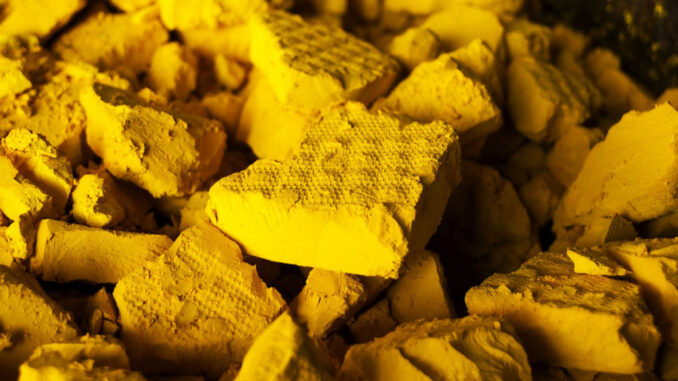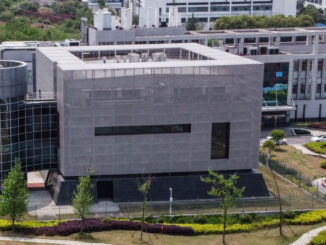
In a landmark move for America’s nuclear energy sector, General Matter, a burgeoning U.S. uranium enrichment startup, has signed a long-term lease with the Department of Energy (DOE) to construct a $1.5 billion enrichment facility in Paducah, Kentucky. This project, announced on August 5, 2025, at the site of the decommissioned Paducah Gaseous Diffusion Plant, signals a revival of domestic nuclear fuel production and could herald the beginning of a broader nuclear renaissance in the United States.
By reshoring uranium enrichment capabilities, the facility aims to bolster national energy security, support advanced nuclear reactors, and reduce reliance on foreign suppliers, potentially saving the U.S. up to $500 million annually in imports.
General Matter: A Startup with Deep Roots in Innovation
Are you from California or New York and need a tax break?
Founded in 2024 and initially incubated within Founders Fund—the venture capital firm known for early investments in SpaceX, Palantir, and Anduril—General Matter emerged from stealth mode in April 2025 with a clear mission: to restore America’s leadership in nuclear fuel production.
The company boasts a powerhouse team drawn from SpaceX, Tesla, Anduril, national laboratories, and the Department of Defense, bringing expertise in engineering, scalability, and national security.
CEO Scott Nolan, a former SpaceX engineer, emphasizes the company’s role in “unleashing a new nuclear renaissance” by developing novel, cost-competitive enrichment technologies.
General Matter has already secured key milestones, including selection in October 2024 as one of four companies for the DOE’s High-Assay Low-Enriched Uranium (HALEU) and Low-Enriched Uranium (LEU) acquisition programs.
HALEU, enriched to between 5% and 19.75% uranium-235, is essential for next-generation reactors that power everything from clean energy grids to data centers supporting artificial intelligence.
The Paducah project will leverage a “scalable, cost-competitive technology” and reuse 7,600 cylinders of existing uranium hexafluoride stockpiled at the site, ensuring efficient and environmentally conscious operations under the oversight of the U.S. Nuclear Regulatory Commission.
Project Details and Economic Boost for Kentucky
The facility will span 100 acres at the historic Paducah site, which operated from 1952 until its closure in 2013 and has since undergone extensive environmental cleanup.
After evaluating over 1,000 potential locations across 11 states, General Matter chose Paducah for its robust infrastructure, skilled workforce, and strong community support—factors that Kentucky Governor Andy Beshear highlighted as key to the project’s success.
Economically, the initiative is a game-changer for Western Kentucky. It represents the largest investment in the region’s history, promising 140 high-paying, full-time jobs once operational, along with hundreds of construction roles during the build phase.
The annual economic impact is projected at $71 million, revitalizing Paducah—once dubbed the “Atomic City”—and positioning it as a hub for clean energy innovation.
Timelines: From Groundbreaking to Full Operations
The lease signing on August 5, 2025, marks the official kickoff.
Construction is slated to begin in 2026, with uranium enrichment operations expected to commence by 2034, according to multiple industry sources.
However, some reports suggest initial operations could start as early as the end of this decade (around 2030), potentially aligning with DOE program needs for HALEU supply.
This phased approach would allow General Matter to ramp up production while meeting regulatory and safety benchmarks.
Investor Opportunities in the Nuclear Revival
As a privately held startup, General Matter presents intriguing prospects for investors eyeing the growing nuclear sector. The company raised $50 million in a Series A round in April 2025, led by Founders Fund, with participation from In-Q-Tel (the CIA’s venture arm) and notable backing from Peter Thiel, who joined the board.
This funding has fueled technology development and site selection, but the $1.5 billion Paducah project—partly supported by DOE grants—suggests room for additional capital raises, such as Series B or later rounds, to finance construction and scaling. Investors should note the broader market tailwinds: Global demand for enriched uranium is surging amid bans on Russian imports and the push for carbon-free energy. General Matter’s focus on HALEU positions it to capture contracts from advanced reactor developers like TerraPower and Oklo. For venture capitalists or institutional players, opportunities may arise through direct investment in General Matter or related nuclear supply chain companies. Public markets also offer exposure via uranium miners (e.g., Cameco) or ETFs tracking nuclear energy, as the sector is projected to grow significantly with U.S. government incentives from the Inflation Reduction Act. However, risks remain, including regulatory hurdles, technological challenges in enrichment, and market volatility in uranium prices. Prospective investors are advised to monitor General Matter’s progress via its website (generalmatter.com) and DOE announcements for upcoming funding rounds.
Why This is Just the Beginning
The Paducah facility isn’t an isolated endeavor—it’s a cornerstone of America’s strategy to rebuild its nuclear fuel cycle. With the U.S. currently importing over 90% of its enriched uranium, projects like this could spark a wave of domestic investments, from new reactors to fuel fabrication plants.
As CEO, Nolan puts it, this is about “reactivating America’s nuclear heartland” and powering the future of clean energy.
For Kentucky and the nation, the new uranium plant in Paducah is indeed just the start of a brighter, more self-reliant atomic era.
Is Oil & Gas Right for Your Portfolio?
Crude Oil, LNG, Jet Fuel price quote
ENB Top News
ENB
Energy Dashboard
ENB Podcast
ENB Substack






